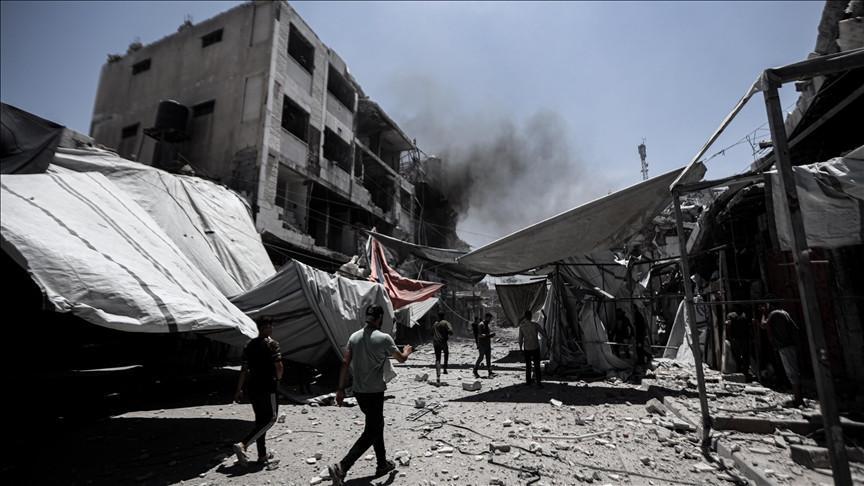
US Special Envoy for Peace Missions Steve Witkoff expressed cautious optimism Tuesday over the prospects of a ceasefire in the Gaza Strip, while simultaneously addressing a range of global flashpoints during a wide-ranging Cabinet meeting at the White House.
Witkoff said negotiations had made "significant progress" in indirect talks between Israel and Hamas, noting that a 60-day ceasefire deal could be finalized by the end of the week.
"We had four issues, and now we're down to one after two days of proximity talks," Witkoff said, standing alongside Trump. He added that under the proposed agreement, 10 living hostages and the bodies of nine deceased individuals would be released. "We are hopeful that this will lead to a lasting peace in Gaza."
Trump called the humanitarian crisis in Gaza a "tragedy" and confirmed he would discuss the situation “almost exclusively” with Israeli Prime Minister Benjamin Netanyahu later Tuesday. "We all want to get it solved — me, Bibi, and even the other side," he said, referring to Hamas.
Israel’s military campaign in Gaza since October 2023 has left more than 57,500 Palestinians dead, the majority of them women and children, according to local health authorities. The enclave faces severe destruction, widespread hunger, and a growing public health disaster. The International Criminal Court has issued arrest warrants for Netanyahu and former Defense Minister Yoav Gallant for alleged war crimes and crimes against humanity. Separately, the International Court of Justice is hearing a genocide case against Israel.
Meanwhile, U.S. Secretary of State Marco Rubio voiced optimism regarding peace talks between Azerbaijan and Armenia. "We hope a peace deal comes pretty soon," he said, citing broader American diplomatic efforts in conflict zones.
Turning to the Russia-Ukraine war, Trump sharply criticized Russian President Vladimir Putin and confirmed the U.S. would be sending more defensive weapons to Ukraine. “Putin is not treating human beings right. He’s killing too many people,” Trump said. He also signaled openness to imposing further sanctions on Moscow. "I'm not happy with Putin. We’re looking at it," he told reporters, adding, “We get a lot of bull***t thrown at us by Putin — and it turns out to be meaningless.”
Trump also escalated his rhetoric against BRICS nations — a bloc comprising Brazil, Russia, India, China, South Africa, and several new members — accusing the group of undermining the U.S. dollar. “Anybody that’s in BRICS is getting a 10 percent charge,” Trump said, proposing a blanket tariff. “They have to pay 10 percent if they’re in BRICS because BRICS was set up to hurt us.”
He claimed the group’s agenda aimed to dethrone the dollar as the global reserve currency and warned that the U.S. could “play that game, too.”
Addressing trade relations with the European Union, Trump said Brussels had softened its stance. “They treated us very badly until recently. Now they’re treating us very nicely,” he said, hinting at a forthcoming trade agreement. “We’re probably two days off from sending them a letter. A letter means a deal.”
Trump also took aim at South Korea over defense costs, saying the U.S. military presence there amounts to a financial burden. “We give them essentially free military,” he said. “I told them, you should pay us $10 billion a year. They went crazy — but they agreed.” He claimed the U.S. has 45,000 troops stationed in South Korea, calling it a “tremendous loss” for American taxpayers.